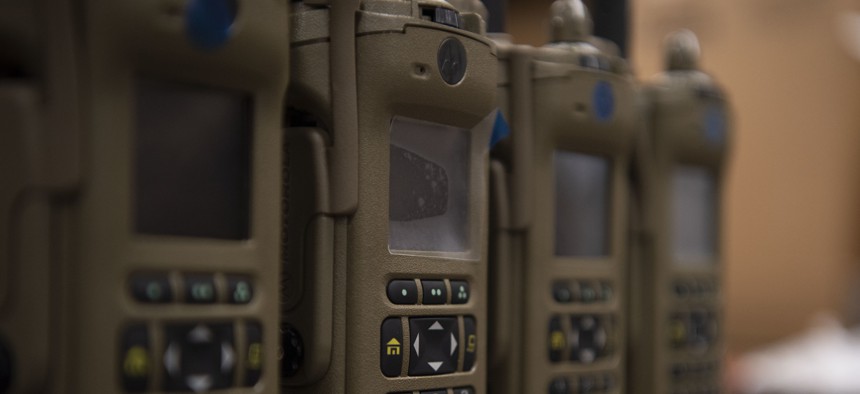
U.S. Air Force photo by Senior Airman Gage Daniel
VA Paid for But Didn't Deploy an Emergency Communications System
Despite spending over $8.5 million on a new emergency communication system contract, a new report has revealed that the Veterans Health Administration failed to establish the network by a deadline that passed more than three years ago.
The Veterans Health Administration has failed to establish a last-resort communications capability in order to continue providing veterans with health care resources in the event of a crisis that impairs communications among Veterans Affairs facilities, according to a new report.
VHA's failure to set up an enterprise-wide emergency communication system comes after the agency spent more than $8.5 million and awarded a five-year contract to install a resilient high-frequency radio network at approximately 200 VA facilities by January 2020, the VA Inspector General report said. According to the report released earlier this month, the IG received a hotline complaint in 2020 alerting that the system was not functioning at a healthcare system in Pennsylvania, which ultimately led the office to conduct an audit into the communications network and its operability at various VA facilities.
The IG audit confirmed the allegation that the network was not functioning and discovered that "VA funds were wasted because the network was not operational."
"VA’s goal of establishing a last-resort communications capability by January 2020 has, more than three years later, not resulted in a nationwide functional system," the report said.
When functional, a last-resort communications system like an RHFRN can allow VA facilities to communicate with federal, state and local agencies with high-frequency capabilities to reestablish health care for veterans in the event of a natural disaster or incident that disrupts communications across external infrastructures.
The audit found that 17 of the 21 sampled locations lacked a fully operational system, despite the VA previously claiming the network was operable in 60% of its facilities with the required radio equipment. The agency "overstated the degree to which the network was operational" and required equipment repairs and increased training across the vast majority of RHFRN sites.
The IG recommended the undersecretary for health ensure adequate training to operate the network and monitor staffing levels to ensure its successful oversight. The office also tasked the assistant deputy under secretary for health for administrative operations to provide additional clarity and guidance around the oversight of the enterprise-wide system. The VHA concurred with all the recommendations and proposed corrective measures as part of an action plan that involves following additional guidance from the Cybersecurity and Infrastructure Security Agency.







